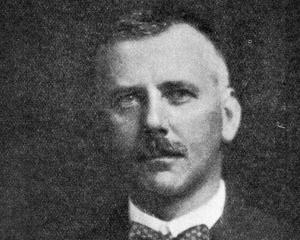
This week both National and Labour have had to attempt to explain their candidates’ road to Damascus, or rather road to the Beehive experiences, shucking off views contrary to the party line.
This comes hard on the heels of Act New Zealand shedding five of its wannabe members of Parliament.
It is apparently still happy, however, to have a climate change spokesman, Simon Court, who does not accept there is a climate emergency.
It seems unlikely Labour’s Deborah Rhodes at 72 on the list, would be elected.
She shared posts as recently as 2019 about the safety of the human papillomavirus (HPV) vaccine, introduced to help prevent cervical cancer.
She claimed, among other things, it would sterilise boys.
She says she no longer holds that view, informing us about her Covid-19 vaccination status, as if that somehow offsets her earlier HPV stance.
This proved tricky for Labour leader Chris Hipkins who had not long before told everyone the presence of Ryan Hamilton in National’s line-up should ring alarm bells for voters.
Mr Hamilton, who is standing for Hamilton East, was exposed for previously espousing anti-fluoride views at odds with the party policy and also claiming Covid-19 deaths data had been inflated.
His reckoning poverty was not a reason to fluoridate water because "lower socio economics filled their tap water with raro" showed a disdain for the less well-off which is disturbing.
He eventually fronted up to reporters but his conversion over water fluoridation was about as convincing as Labour finance minister Grant Robertson’s sudden love affair with removing goods and service tax from fruit and vegetables.
Mr Hipkins said he believed people were entitled to change their views in politics, but in general had not found conspiracy theorists were "that willing to change their views".
There has been little recent noise about New Zealand First candidate Kirsten Murfitt, who also has shared a variety of conspiracy theories, but at 11th on the list she is considered unlikely to be elected.
It is hard to understand why candidates with dodgy social media profiles are still getting through.
It is as if those responsible for vetting candidates cannot grasp how easy it is for the media, and anyone else for that matter, to find out this stuff.
It is reasonable to expect people might change their views over time, but it is interesting these candidates with extreme views who have had these changes of heart do not seem to have had the same enthusiasm for sharing their newfound beliefs online.
Before the days of social media, it was easier for voters to remain unaware of repugnant or just plain wrong views, unless they were personally known to candidates, but those days are over.
It is time political parties and wannabe candidates came to grips with that.
And another thing
There also needs to be more fact checking of claims made by politicians in debates.
On the 1News first leaders’ debate this week, Mr Hipkins said Labour had banned fizzy drinks in primary schools already.
Which it has not.
Yesterday, a Ministry of Education spokesperson confirmed our understanding that in 2022 the Government consulted about introducing this at the beginning of this year but did not carry through with it.
Schools are encouraged to have healthy drinks policies, but there is no compulsion.
Officials are working on how a healthy drinks policy requirement could be introduced in primary and secondary schools at the same time but have yet to report back.
Labour’s election policy is to require all schools to provide only healthy drinks on-site (unflavoured water and milk).
However, its policy would not apply to drinks brought from home, although schools could decide to include them after community consultation.












